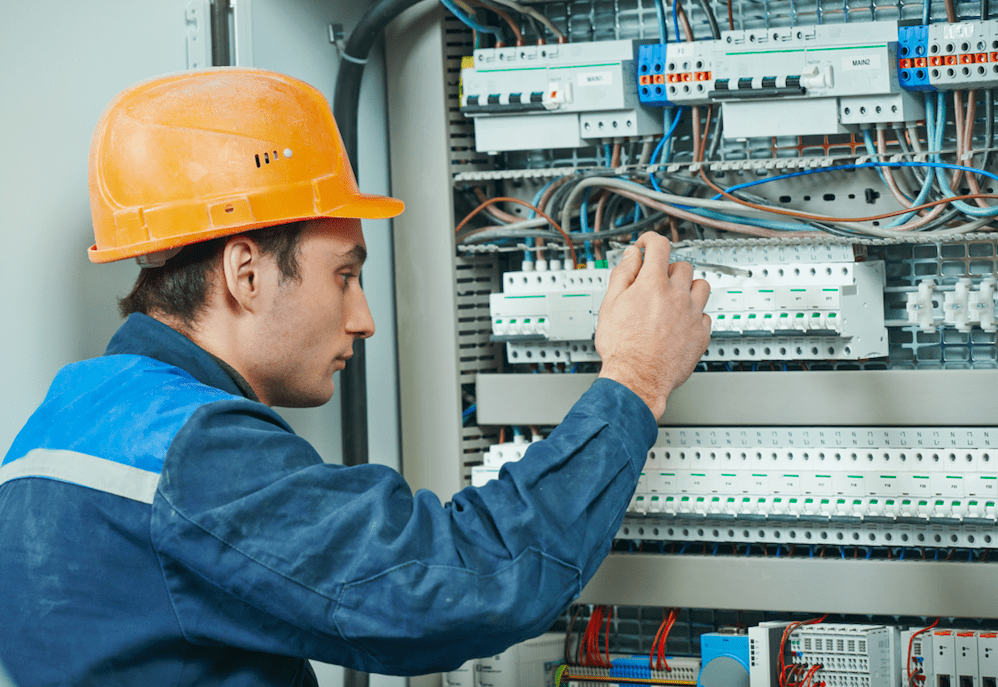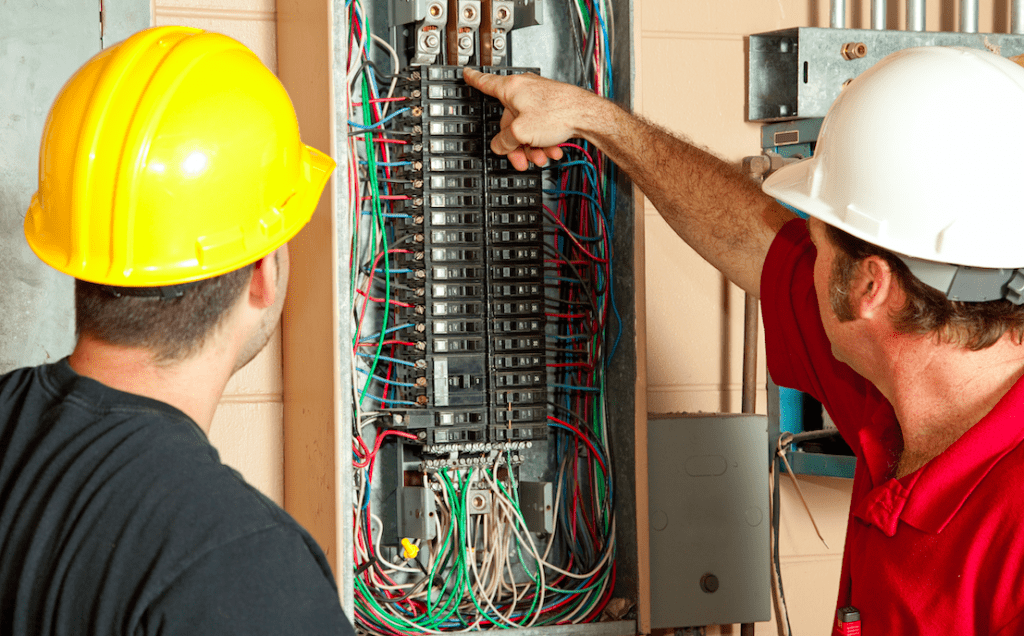Circuit breakers are an essential safety feature in both homes and commercial buildings in New Jersey.
If any part of an electrical system has too much energy flowing through it, breakers are going to kill the power. This means peace of mind for everyone inside, but it can be a hassle to get them turned on and kept on if they do trip.
That’s why being able to answer the question, “Why do circuit breakers trip?” is so essential. Read on to learn four of the most common causes.

Why Do Circuit Breakers Trip?
When every fixture and light simultaneously goes dead or dark, it’s because one of the breakers tripped. These devices are made to automatically power off when problems occur, but the reasons it happens can vary. It’s important to understand why the situation happened, though, as it’s going to help you diagnose the problem.
Overloaded Circuit
The cause of an overloaded circuit might vary between home and commercial settings, but the cause remains the same.
Circuits overload when they attempt to draw a greater electrical load than they’re intended to carry. It’s the most common reason that circuit breakers trip, and it’s important to fix it whenever you notice it happening — especially if it’s a common occurrence. If you notice it happening often, it’s a sign that you’re demanding too much from one circuit, and that it’s time for you to rearrange some things.
Ground Fault
A ground fault occurs when a hot wire comes into contact with a ground wire or touches metal framing members. It can be especially dangerous if this occurs in areas with high moisture levels or outdoor locations, as they lead to a higher risk of electrical shock.
Arc Fault
Arc faults occur in AFCI breakers. Arcing, or high power fluctuations, occur most commonly when there’s a contact point between a wired connection. Usually, this looks like a loose terminal connection in either an outlet or switch.
These breakers are important for fire protection, so if you notice this happening a lot in your AFCI breakers, it could mean it’s time to take a look at the connections that run between them. It’s important to call out a professional if you have any safety concerns.
Short Circuit
Typically, if a circuit breaker trips immediately after you reset it, it could mean a short circuit.
This occurs when a hot wire touches a neutral wire, a ground or bond wire, or the case of a metal box. Because of lowered resistance, the short circuit allows for an unimpeded flow of electricity, activating the tripping mechanism.

Is Your NJ Commercial Circuit Breaker Up to the Task?
It’s important to have an answer to the question, “Why do circuit breakers trip” when you’re working in a commercial setting in New Jersey. These components are essential to everyone’s safety, and they’re an important component of any electrical system. If there are problems with your breakers, you don’t know what may or may not go wrong.
Luckily, ROS Electric can help whenever you need it. Contact us to get started today!


Write a Comment